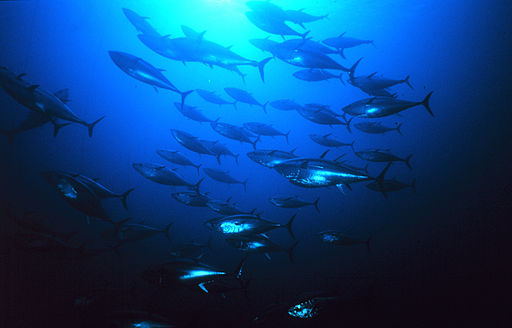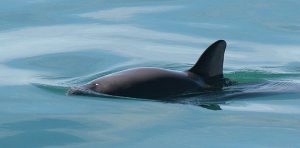Fish Evolve to Avoid Fishing
New research supports the creation of more marine reserves that are protected from fishing activities, as it has been discovered that fish can evolve to be more cautious and avoid fishing nets.
 Image: By Danilo Cedrone (United Nations Food and Agriculture Organization) (http://www.photolib.noaa.gov/htmls/fish2001.htm) [Public domain], via Wikimedia Commons
Image: By Danilo Cedrone (United Nations Food and Agriculture Organization) (http://www.photolib.noaa.gov/htmls/fish2001.htm) [Public domain], via Wikimedia Commons
A marine reserve is a type of protected area that has legal protection against fishing or development. They are fully protected against any activity that will remove animals or plants or alter their habitats – as well as fishing, this includes aquaculture, dredging and mining. Evidence shows that this protection means that marine reserves boost the abundance, diversity, size and reproductive potential of marine species living within their borders. In total, the area that marine reserves cover across the globe is 300,000 square kilometres.
New research from the University of British Columbia supports the creation of more marine reserves in the world’s oceans. This is because the authors of the study (published in the journal Evolutionary Applications) say that fish can actually evolve to be more cautious and stay away from fishing nets. By creating additional “no-take” areas, some fish will stay within the reserves where they are protected. Some fish do move around the ocean, but some less mobile fish will continue to live in the protected areas and pass on this behaviour to their offspring. This will contribute to future generations and increase their overall numbers.
“Even for fish like tuna and sharks that spend a lot of time far from shore, marine reserves are an important conservation tool,” said Jonathan Mee, lead author of the study. “We used mathematical modelling to find out under what conditions marine reserves might push fish to evolve to escape capture.”
The researchers modelled the movements of skipjack and bluefin tuna, as well as great white sharks, in the ocean. They found evidence that within 10 years of creating new marine reserves, the movement patterns of tuna can change. However, it would take up to 50 years for the longer-living great white shark to change movement patterns. They also found that the greater the fishing pressure close to the reserve, the faster the fish will evolve to stay within the protected area.
The authors argue that there is a need to create more marine reserves because fishing operations have grown exponentially in recent years. This has led to a global catch decline of 1.2 million tonnes of fish per year. “The boats got bigger and now we can cover the entire range of the tuna. The distance doesn’t protect them, depth doesn’t protect them, nothing protects them except our decision to remove ourselves from certain areas in the form of marine reserves,” said Daniel Pauly, principal investigator of the Sea Around Us project and a co-author of the study. “A well-controlled marine reserve would, at least in part, protect against the effect of overfishing outside the reserve.”
These findings show fisheries managers, conservation planners, environmentalists and professionals in the fishing industry the effectiveness of marine reserves. “The reserves are likely more effective than previously thought in preventing extinction for some species, protecting biodiversity and even acting as an insurance policy,” said co-author Sarah Otto.





No comments yet.